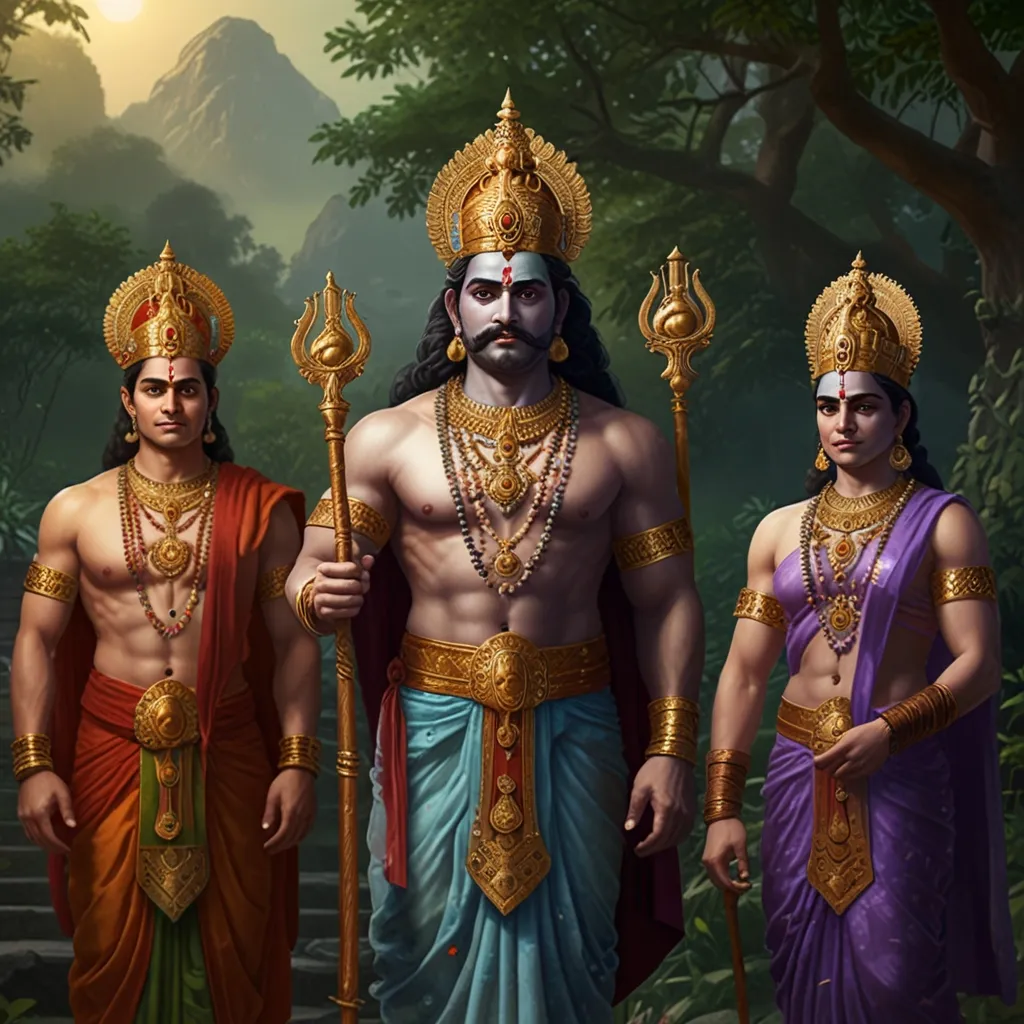If you’ve ever explored the Mahabharata, you’ve probably wondered how Krishna’s choices can make us pause. Here is a figure who is never content with simple answers. Krishna’s strategies in the Mahabharata are not about playing by the rules, but about asking what those rules are really for. Should we cling to a code even when it no longer serves justice? Or do we sometimes need to look past it for the greater good? That’s the core of Krishna’s moral chess game, and it’s a lesson that’s as relevant in boardrooms and courtrooms as it is on ancient battlefields.
Krishna is neither the flawless god nor the rule-breaking rebel his critics sometimes paint him as. Instead, he’s the architect of a kind of ethics that prioritizes outcome over ritual, and context over dogma. When he guides Arjuna, when he interrupts the duel to tip the scales, or when he helps orchestrate the fall of Kaurava giants through trickery or half-truths, he is not denying morality—he’s constantly asking what justice really means in the mess of real life.
“Whenever dharma declines and adharma rises, I create myself,” Krishna declares in the Bhagavad Gita. But what does that creation look like? It’s easy to celebrate the victories and condemn the betrayals, but Krishna’s choices challenge us to see heroism and cunning as two sides of the same coin. Would you maintain your integrity if it cost thousands their lives? Would you bend a principle to save a nation? These are not easy questions—and Krishna never pretends they are.
Let’s consider the famous moment when Arjuna hesitates to strike down Karna. The rules of war say it’s wrong, but Krishna pushes him to act. Why? Because by that point, the battle itself has shredded the code. The Kauravas have already manipulated, lied, and killed without honor. The “rules” no longer protect anyone; they just prolong suffering and injustice. Krishna’s moves here are less about personal victory and more about ending a cycle that has caused untold harm.
“Right is right, even if no one is doing it; wrong is wrong, even if everyone is doing it.” These words, while not from the Mahabharata, highlight the paradox Krishna confronts. Can ethical purity survive in a world where everyone else plays dirty? Or is righteousness about something deeper?
Krishna’s pragmatism is evident everywhere. Take the psychological tactics used against Dronacharya: Krishna knows Drona’s love for his son Ashwatthama is his Achilles’ heel. By advising a half-truth—that Ashwatthama is dead—Krishna exploits this vulnerability, using Yudhishthira’s reputation for honesty as a weapon. It’s a masterstroke of strategy, but it’s also a heavy moral burden for everyone involved. Who benefits? Who pays the price? The epic never lets us look away from these uncomfortable debts.
What, then, is Krishna saying about morality? The lesson isn’t that rules are useless, but that they are incomplete. Justice sometimes demands uncomfortable choices. Throughout the Mahabharata, Krishna’s philosophy evolves into a kind of contextual ethics—what’s right depends on why and when you act, not just what you do. It’s a reminder that there are moments when duty asks for more than blind obedience.
In a way, Krishna’s chessboard reflects the real world. Think about how leaders today have to make decisions with no perfect answers. Diplomats, activists, judges—none of them gets a clean slate. They weigh consequences, not just intentions. Krishna forces us to face the same ambiguities. He doesn’t romanticize the cost. In fact, everyone who follows his advice—from Arjuna to Yudhishthira—ends up facing guilt, grief, or doubt. No one escapes unscathed.
“How far that little candle throws his beams! So shines a good deed in a naughty world.” Shakespeare wrote that, and it could almost be Krishna’s view—except he might add that sometimes, shining the light means getting your hands dirty. He never shirks from this complexity.
One of the subtler angles often missed is Krishna’s leadership style. He doesn’t force the Pandavas to follow his counsel; he persuades, reasons, and sometimes challenges their own ideals. Arjuna’s moment of hesitation is the Gita’s heart: Krishna doesn’t order him to fight, he explains the consequences of action and inaction. He frames the decision as Arjuna’s own to make—and accepts whatever outcome his friend chooses. There’s deep respect in that approach.
Another lesser-known perspective is the psychological battlefield Krishna manipulates. It’s not just swords and arrows, but doubt, fear, ego, and hope. He identifies when a word or a gesture will have more impact than a weapon. When Krishna calls for Bhima to strike Duryodhana below the waist, he’s not only ending a rival, he’s shattering the enemy’s morale and reshaping the narrative of justice itself.
But what about personal morality? Time and again, Krishna shows that duty to the collective can—and sometimes must—outweigh personal virtue. Yudhishthira, famed for his commitment to truth, must tell a half-truth. Arjuna, wracked with uncertainty, must kill a disarmed rival. The Mahabharata doesn’t absolve these acts. Instead, it suggests that purity and justice rarely align in times of crisis.
“Morality is not the doctrine of how we may make ourselves happy, but how we may make ourselves worthy of happiness,” Kant observed. Krishna would likely agree, but he’d point out that worthiness often includes sacrifice and sorrow, not just noble intentions.
Does this mean anything goes as long as your goal is righteous? Not quite. Krishna sets boundaries. He intervenes only when the ordinary rules fail, and only for a cause greater than personal gain. When Kauravas break the code, he demonstrates that rigid morality in the face of evil perpetuates suffering. He never encourages cruelty for its own sake, and he always takes responsibility for the outcomes of his guidance.
One unconventional angle is how Krishna’s approach prefigures many modern ethical debates. Philosophers today struggle with the same questions: Is it right to lie to protect someone? Should laws be flexible in the face of urgent need? Krishna’s answers mirror those of consequentialists, who argue that outcomes matter most, but he always ties this back to a sense of higher justice. His pragmatism is never cynical, always purposeful.
So why does Krishna matter now? Today’s world is full of dilemmas with no simple solutions. Whether it’s politics, medicine, or social justice, we often face choices where every option has a cost. Krishna’s example suggests that true wisdom lies in seeing the full picture, weighing intentions, methods, and results—then choosing the path that serves justice, even if it means stepping outside our comfort zone.
“Whenever you are confronted with an opponent, conquer him with love,” Gandhi once quoted from Krishna’s life. Yet Krishna also knew that love, like justice, sometimes means defending what is right, even if it’s uncomfortable or costly. The Mahabharata’s hero is not a paragon of untouchable ethics—he is a strategist who understands the fragile balance between ideals and reality.
If you’ve ever wondered how to decide between two bad options, Krishna is the mentor who doesn’t give you a rulebook but asks you to look at what is truly at stake. He is the reminder that morality is not stagnant but living, breathing, and—above all—responsive.
In the end, Krishna’s moral chess teaches us that truth is not always about following rules to the letter. Sometimes, preserving what matters most means accepting imperfection. Sometimes, victory isn’t clean, and neither is defeat. The real question we’re left with is: Are we willing to weigh our choices with courage and honesty, even when the path isn’t clear?
The Mahabharata never lets us settle for easy answers. Through Krishna, it voices the challenge that echoes into every ethical dilemma we face: “What will you choose, when the moment comes?” The game of moral chess continues—on our streets, in our hearts, and in every moment when justice demands more than rules.






